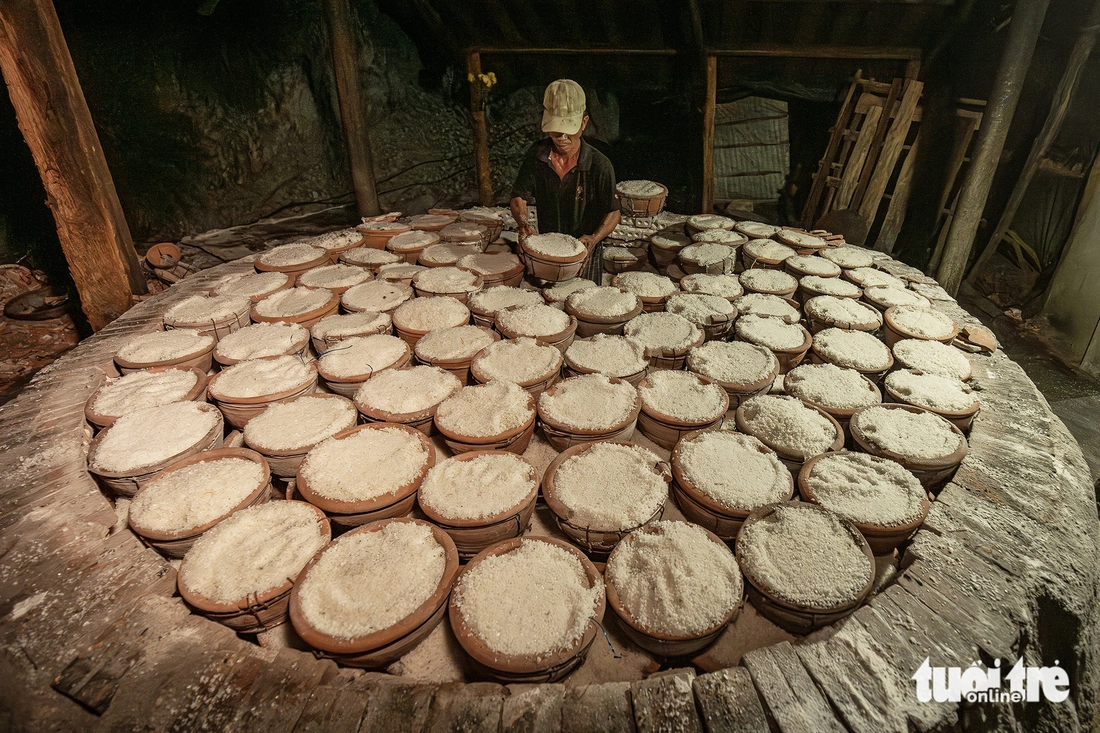
Salt making is hard work, salt mining is even harder. Each grain of salt produced is not only the crystallization of the sea vapor but also the sweat and hard work of the people here.
Over 150 years old, Tuyet Diem salt village (Xuan Binh commune, Song Cau town, Phu Yen province) still maintains traditional production methods.
To avoid the heat during the day, salt workers have to stay up all night to make salt. The salt after being made becomes pure, salty and not bitter.
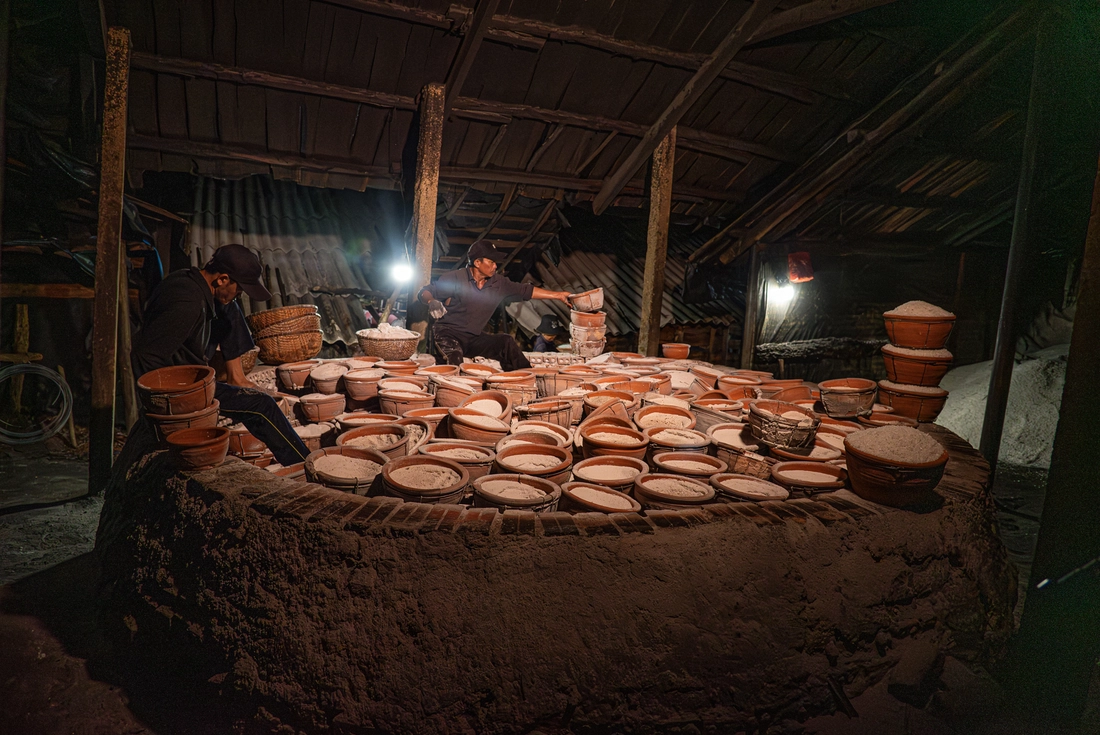
At exactly 12 midnight, when everyone was fast asleep, the salt workers in the village gathered at the furnace. Their first task was to remove the pots of salt they had stewed the night before, then start a new batch.
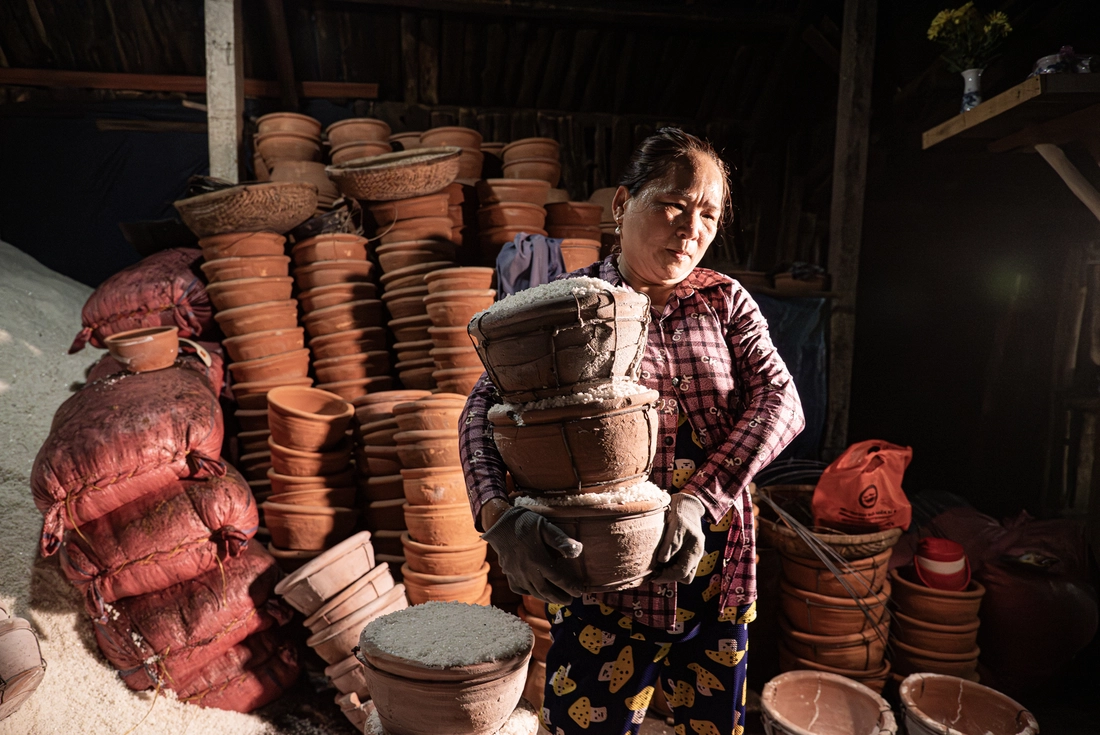
After being harvested from the fields, the salt grains will be put into ceramic pots and transferred to the furnace. On average, each furnace can produce about 500 pots per night, producing 1.2 - 1.5 tons of salt.
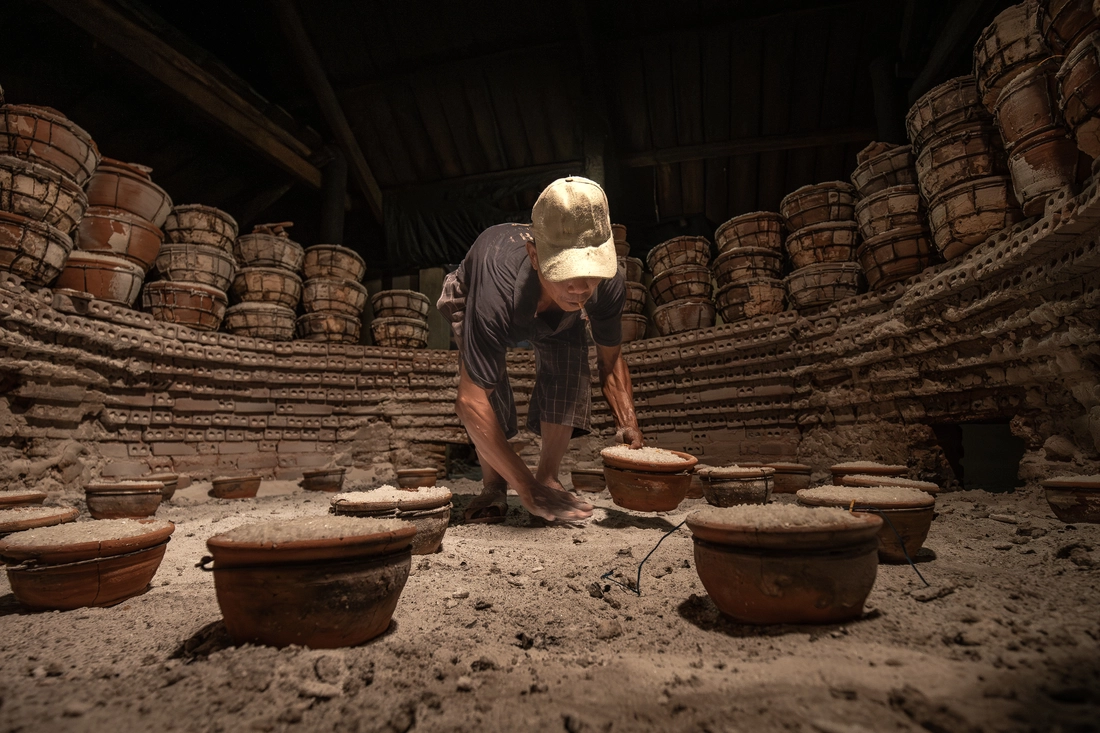
Placing salt in the oven requires meticulousness and care. The person who places the salt must be an experienced person, they know how much is enough, how big or small the top and bottom are, so that when stewed, the salt is evenly cooked.
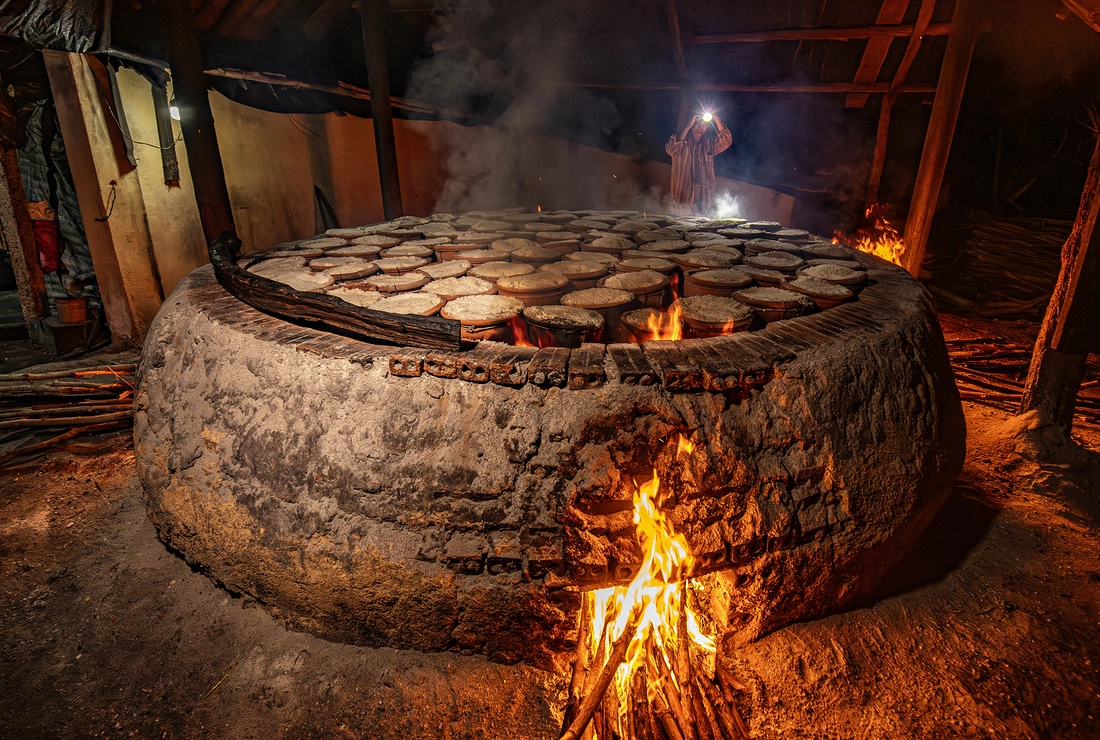
After filling the pot, the worker lit a fire and began the salt cellaring process.
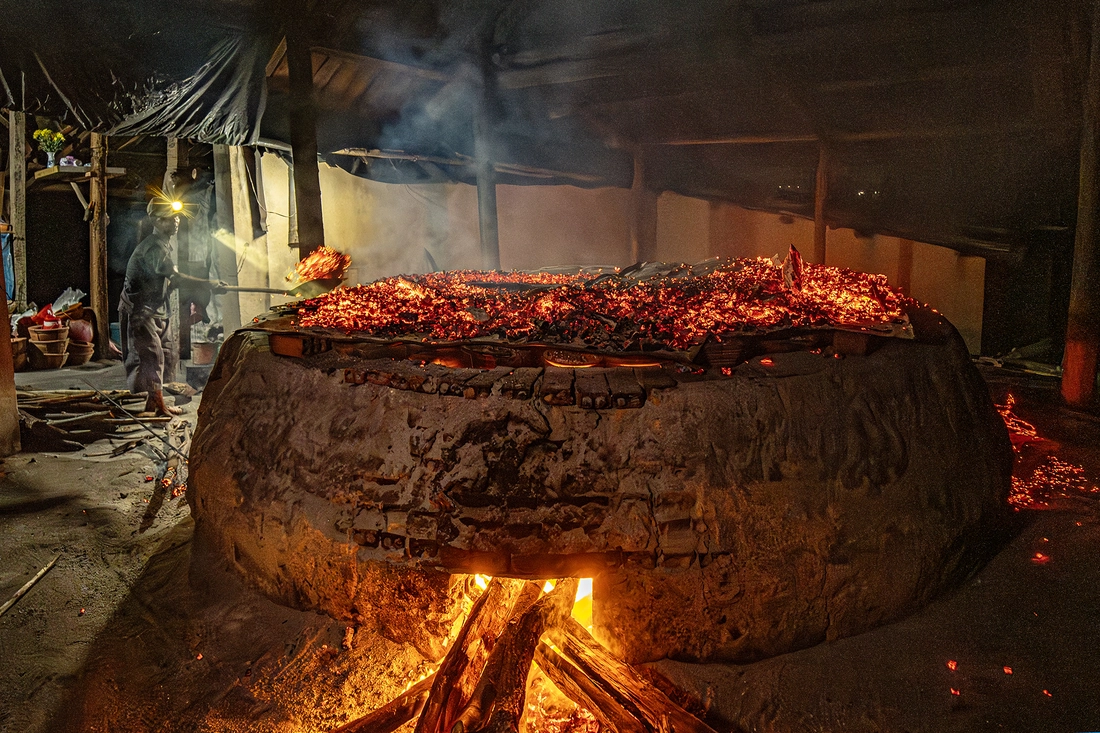
The coal in the furnace was burning brightly, the worker spread the coal evenly over the surface of the furnace so that the salt was hot enough and cooked evenly from top to bottom.

In the flickering light of their headlamps, they work tirelessly, putting the cooked salt into bags and keeping the fire going to keep the salt in the oven hot enough. At 6am, the salt will continue to be incubated until midnight, when they will take it out and cook a new batch.
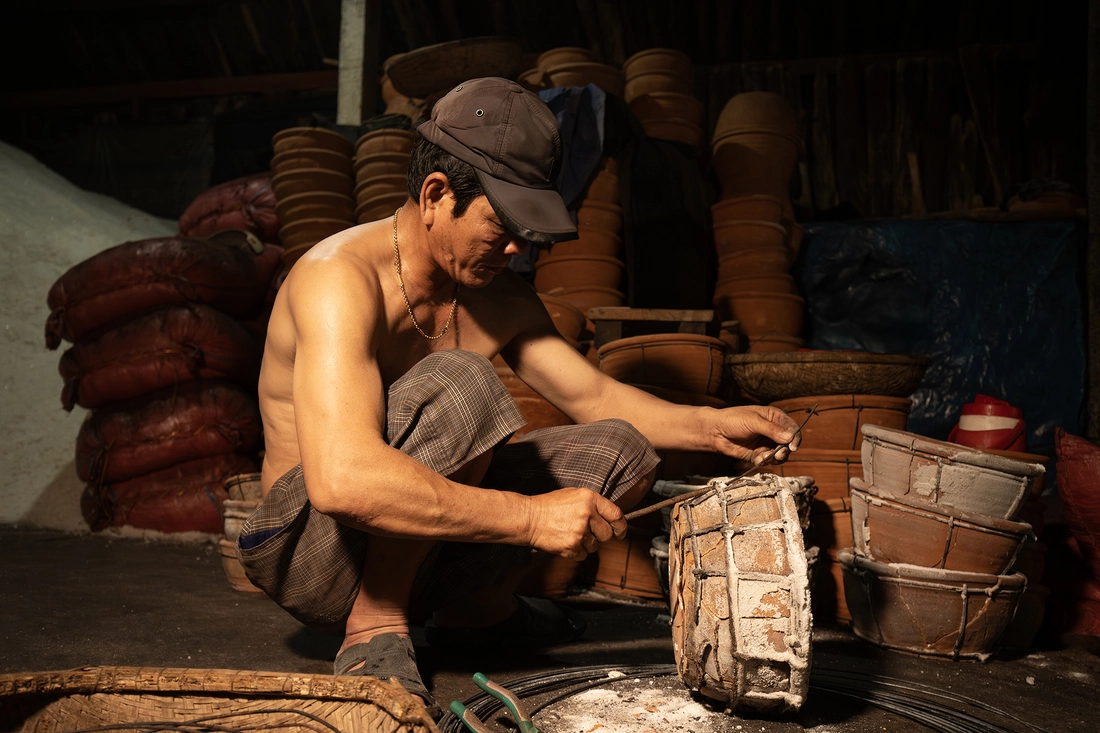
With cracked pots, they have to tie them up to reuse, saving costs. Salt stews with high temperatures, on average 3 stews must change pots once.
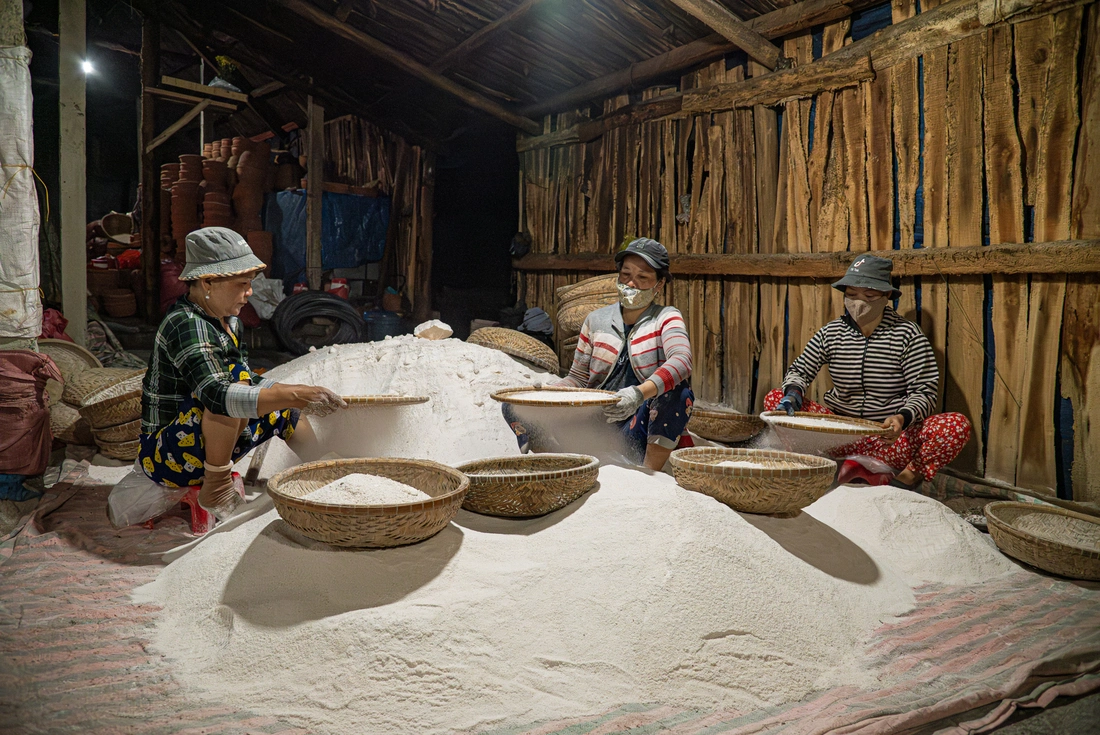
While the men were preparing the salt and lighting the fire, outside the women began to sift the salt from the night before. The coarse salt grains passed through the red fire and became tiny, white, and smooth.
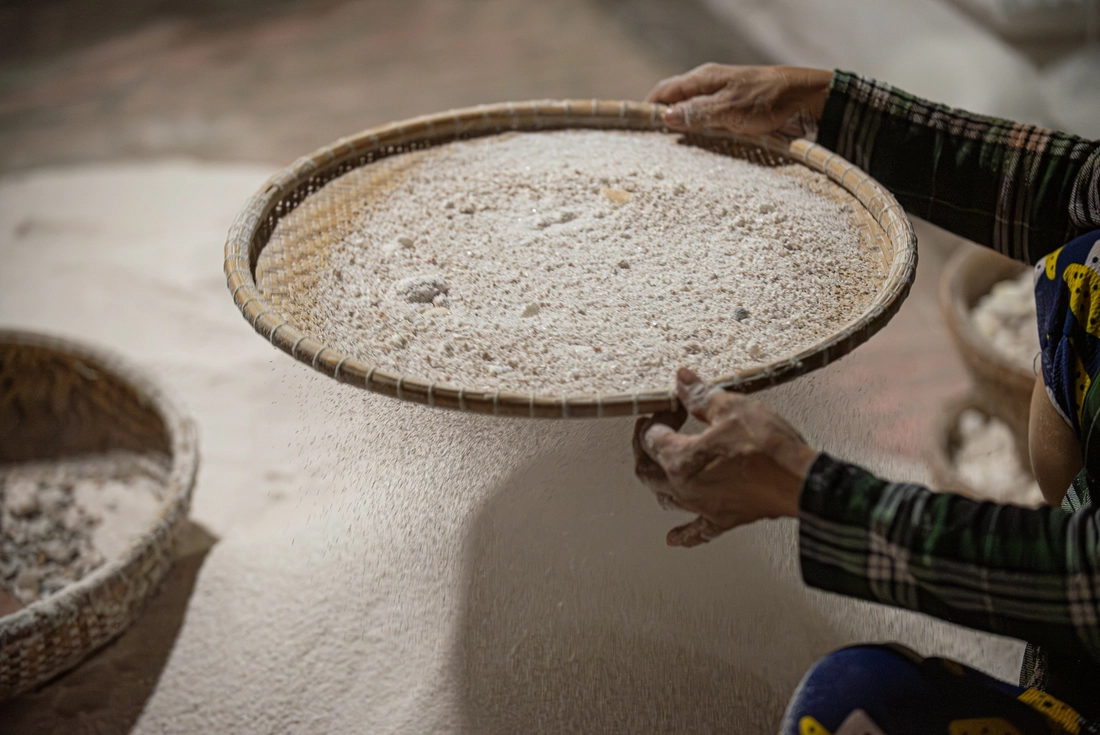
The salt after being stewed has a slightly salty taste, not acrid, more delicious than raw salt and can be kept dry for a whole year. Thanks to that, the value of the salt grains also increases several times. The price of raw salt is only about 1,500 - 2,000 VND/kg, but the price of salt after being stewed is up to 6,000 - 7,000 VND/kg.
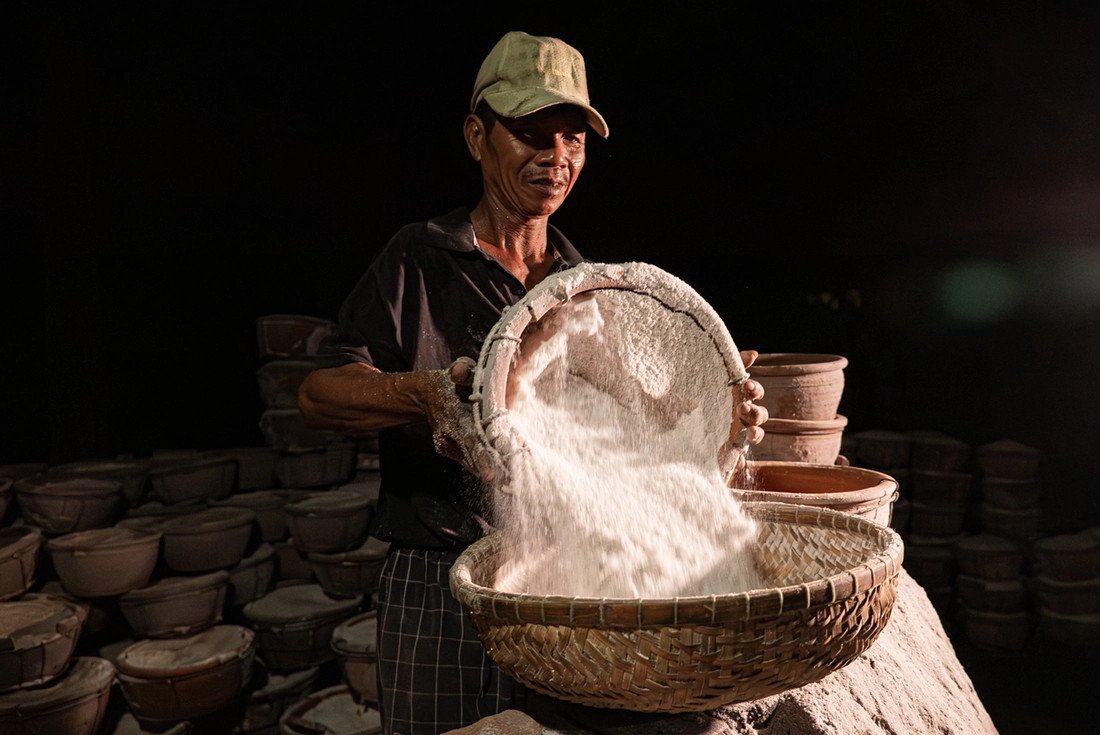
Having been involved in the salt mine business for more than 20 years, Mr. Nguyen Van Dao shared: “The work is hard, working all night but earning only about 200,000 - 300,000 VND/day. At its peak, Tuyet Diem village had dozens of households working in the profession, but now there are only 4 households with 5 salt mines left.”
Source: https://tuoitre.vn/trang-dem-ham-muoi-o-lang-muoi-150-nam-tuoi-20250620122315114.htm



































































































Comment (0)